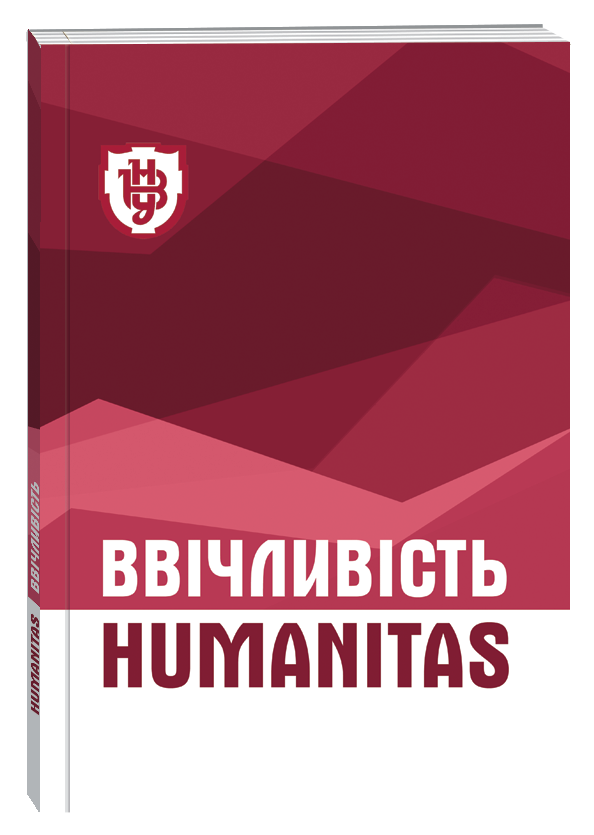АДАПТИВНА МОДЕЛЬ ПІДГОТОВКИ СОЦІАЛЬНИХ ПРАЦІВНИКІВ ДО КРИЗОВОГО ВТРУЧАННЯ ТА ПСИХОСОЦІАЛЬНОГО СУПРОВОДУ ВЕТЕРАНІВ РІЗНОГО ВІКУ В ГРОМАДІ
DOI:
https://doi.org/10.32782/humanitas/2025.3.13Ключові слова:
соціальна робота, соціальна реінтеграція, психосоціальний супровід ветеранів, кризове втручання, громада, компетентнісний підхід, партисипація, модель підготовки соціальних працівниківАнотація
У статті представлено адаптивну модель професійної підготовки соціальних працівників до кризового втручання та психосоціального супроводу ветеранів у громадах, яка враховує вікові особливості цільової групи та специфіку регіонального контексту. Модель розроблена й апробована у місті Запоріжжі – прифронтовому регіоні, що зазнає постійних гуманітарних викликів в умовах повномасштабної війни. Автори, поєднуючи науковий і практичний досвід, обґрунтовують необхідність переосмислення змісту підготовки фахівців соціальної сфери відповідно до сучасних умов, які вимагають від них здатності працювати в умовах невизначеності, моральної складності та соціальної турбулентності.Запропонована модель базується на поєднанні компетентнісного, партисипативного та суб’єктно-орієнтованого підходів і складається з чотирьох компонентів: концептуально-аналітичного, практико-орієнтованого, етико-особистісного та інституційно-організаційного. Особливу увагу приділено формуванню навичок кризового втручання, первинної психологічної допомоги, розвитку психоемоційної стійкості та здатності до фасилітаційного супроводу ветеранів різного віку з урахуванням їхніх потреб та життєвих ситуацій. Емпіричною основою дослідження є результати реалізації навчального курсу для соціальних працівників у Центрі професійних кваліфікацій Запорізького національного університету. Показано відповідність моделі положенням професійного стандарту фахівця з соціальної роботи у сфері підтримки ветеранів, а також виявлено прогалини в чинному нормативному регулюванні, що потребують оновлення. Представлені результати свідчать про зростання професійної готовності слухачів, посилення їхньої мотивації до соціальних інновацій та налагодження партнерської взаємодії з громадою. Запропоновано напрями подальших досліджень, зокрема у сфері оцінювання ефективності реінтеграції, профілактики професійного вигорання та залучення досвіду самих ветеранів до процесу підготовки фахівців.
Посилання
Вдовіченко О.В., Соколова І.М., Педченко О.В., Степанова С.С., Фролова О.В. Психологічна реабілітація і супровід ветеранів війни: досвід Ізраїлю. Zeszyty naukowe wyższej szkoły technicznej w katowicach. 2023. (16). S. 107–118
Копилова С.В. Технологія організація спільної діяльності субʼєктів професійної підготовки магістрів соціальної роботи. Науковий вісник Ужгородського університету. Серія: «Педагогіка. Соціальна робота». 2016. 2 (39). С. 109–113.
Мальований, М. І., Улянич, Ю. В. Зарубіжний досвід професійної та соціальної адаптації військових. Вісник соціально-економічних досліджень : зб. наук. праць. Одеса : Одеський національний економічний університет. 2023. № 3-4 (86-87). С. 38–47.
Професійний стандарт «Фахівець із супроводу ветеранів та демобілізованих осіб» затверджений наказом Міністерством у справах ветеранів України від 31 грудня 2024 року № 508. URL: https://register.nqa.gov.ua/uploads/0/706-ilovepdf_merged_13.pdf
Раєвська Я. М. Сучасний стан професійної підготовки фахівців соціальної сфери до міжпрофесійної взаємодії. Збірник наукових праць Кам’янець-Подільського національного університету імені Івана Огієнка. Серія: Педагогіка. 2018. (31). С. 120–124.
Черчик Л. М. Сутність та форми реабілітації ветеранів, учасників бойових дій та їх сімей / Природні лікувальні активи, реабілітація та курорти: І Міжнародна науково-практична конференція. ДУ «ІРЕЕД НАН України». Одеса, 2024.
##submission.downloads##
Опубліковано
Як цитувати
Номер
Розділ
Ліцензія

Ця робота ліцензується відповідно до Creative Commons Attribution 4.0 International License.







